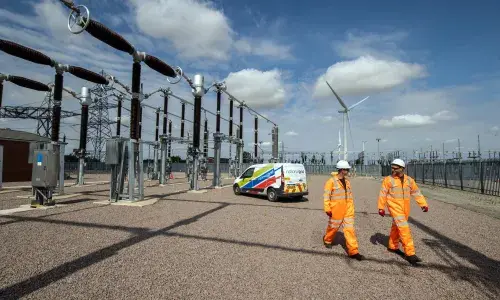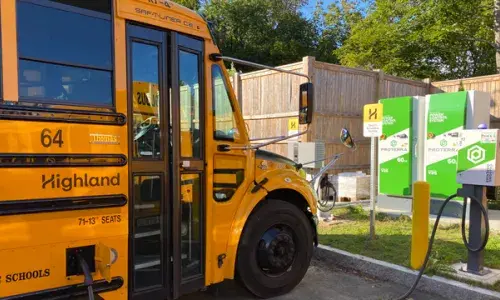
Government sets out plans to cut emissions and reach net zero
The white paper entitled Powering our Net Zero Future sets out steps the UK Government will take over the next 10 years to cut emissions from industry, transport and buildings, while creating new green jobs.
The policy announcement from the Department for Business, Energy and Industrial Strategy (BEIS) follows the Government’s 10-point plan in November, as the UK prepares to host the 2021 climate summit COP26.
Appearing on BBC Radio 4’s flagship news and current affairs programme Today this morning, our UK Executive Director Nicola Shaw spoke about the role for offshore wind, nuclear power and energy storage as we work towards 2050. She was also asked about the grid’s ability to cope with the future surge in demand, with increasing numbers of electric vehicles.
Nicola said: “The energy white paper builds on the 10-point plan and the next few months and years will be critical to providing the further policy detail needed to ensure we can get on with delivery. We are pleased to see the energy white paper progressing the discussion on what is needed to deliver the important ambitions on offshore wind and interconnectors, as well as hydrogen, carbon capture, utilisation and storage (CCUS), heat and transport decarbonisation.
We are pleased to see the energy white paper progressing the discussion on what is needed to deliver the important ambitions on offshore wind and interconnectors, as well as hydrogen, CCUS, heat and transport decarbonisation.
“Against a backdrop of COVID-19 and Brexit there’s a lot of uncertainty, but there is also an undisputed urgency to act on decarbonising the energy sector and supporting a green recovery. The next few months will be critical to providing further policy to ensure we can get on with delivery.”
Business and Energy Secretary Alok Sharma said: “Today’s plan establishes a decisive and permanent shift away from our dependence on fossil fuels, towards cleaner energy sources that will put our country at the forefront of the global green industrial revolution.”
Speaking about the Government’s plans to legislate for competitive tendering in the building, ownership and operation of onshore electricity networks, our Director of UK Regulation Chris Bennett said: “The scale of projects we have in the pipeline is unprecedented and, as it stands, we have no sight of whether we will be the ones to deliver them.
“We are therefore keen for Government to now bring forward the legislation necessary to deliver a Competitively Appointed Transmission Owner as soon as possible – in in order to provide some much-needed certainty.”
Jon Butterworth, CEO of National Grid Ventures, welcomed the Government’s increased capacity targets for interconnectors – giant undersea cables allowing us to share clean energy with our European neighbours – and the resulting benefits for decarbonisation.
Jon said: “Developing additional interconnector capacity between the UK and its neighbours will accelerate the integration of renewable energy, strengthen security of supply and reduce electricity costs for consumers.
“In the last year alone, National Grid’s interconnectors have prevented more than 1 million tonnes of carbon dioxide (CO2), equivalent to planting 50 million trees or taking almost 700,00 cars off the road. By 2025, we will have eight gigawatts of interconnector capacity to Norway, Denmark, the Netherlands, Belgium and France, which we estimate will prevent around 100 million tonnes of CO2 emissions between now and 2030.
In the last year alone, National Grid’s interconnectors have prevented more than 1 million tonnes of CO2, equivalent to planting 50 million trees or taking almost 700,00 cars off the road.
“We also welcome the Government’s recognition of the role of hybrid, multi-purpose interconnector projects to accelerate the deployment of offshore wind, while reducing the impact of infrastructure on coastal communities.
“We are already working together with Dutch transmission system operator TenneT to develop a concept for a multi-purpose interconnector pathfinder project, to connect up to 4GW of offshore wind between Great Britain and the Netherlands by 2030.”
The Government’s commitment to treble the amount of biomethane in the grid by 2030 met with approval from Ian Radley, our Head of Gas System Operations. He said: “Alongside hydrogen, biomethane will play an important role in the journey to Britain achieving net zero. We’re already working on innovative projects to inject biomethane to the National Transmission System and trebling the volumes by 2030 will support the transition to a low carbon economy.”
The Government plans include:
|


